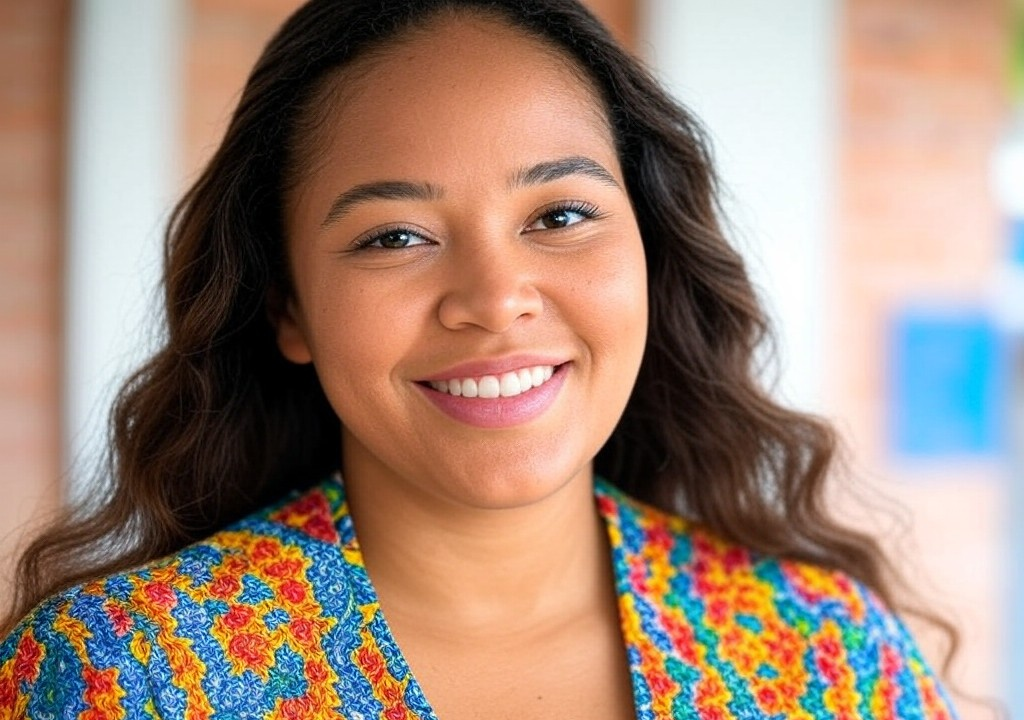What Scares Me the Most (and Why I Do It Anyway)
I still remember the first time I had to sing in front of my extended family at a Christmas gathering. My abuelita threw her arm around me, handed me a hairbrush-turned-microphone, and said, “¡Cántale algo, mija!” The room erupted into cheers before I could even open my mouth. But let me tell you—my 10-year-old self would’ve rather disappeared into the tamal pot than perform Marc Anthony’s “Vivir Mi Vida” with thirty pairs of eyes staring at me.
That sheer terror, the kind where your stomach starts plotting its escape to a quieter home, is something I know well. Back then, I survived by channeling my inner diva (which, spoiler alert, wasn’t very inner). But as I’ve gotten older, those feelings of fear have taken on different shapes—like showing up as my most vulnerable self in relationships or—heaven forbid—being the first one to say, “I like you.”
Yet, somewhere along this winding journey of personal growth, minor disasters, and awkward first impressions, I’ve realized something: the things we fear the most are often the things worth doing anyway. Let’s break it down.
Fear Is Loud, but It’s Not the Truth
Fear is a lot like your well-meaning tía who loves to chime in with “advice” at family parties. It sounds convincing and is often delivered with the urgency of a telenovela plot twist. But, like her suggestion that you give up your career to marry a nice accountant, it doesn’t always make sense.
For me, fear loves to show up during those early dating “DTR” (Define the Relationship) talks. You know, when you’re sitting across from someone and the stakes feel sky-high. My brain spirals into overdrive, imagining every worst-case scenario:
- “What if they don’t feel the same way?”
- “What if I scare them off by being too honest?”
- “What if I end up like that woman in Love Actually whose crush marries her best friend?!”
Here’s the thing: fear tells compelling lies. It tricks us into thinking change or emotional risk will end in disaster when, often, the opposite is true. Every time I’ve let fear take the wheel, I’ve lost the opportunity to show up as my real self. I’ve left words unsaid, doors unexplored. It turns out nothing feels worse than realizing that fear held you back.
Lean Into the Cringe
One thing growing up in a Cuban-Mexican family taught me is the art of embracing mild embarrassment. You can’t be shy when an uncle shouts from across the barbecue that it’s time for you to settle down (my face still burns thinking about those moments). I’ve learned that vulnerability isn’t just something you survive—it’s something you thrive on.
In relationships, this means admitting your feelings even when you’re scared. It means texting “I miss you” first or—even wilder—asking where things are going. Is it terrifying? Yes. Will you feel like the human embodiment of secondhand awkwardness? Also yes.
The first time I confessed my feelings to someone, I spent half the conversation nervously squishing a Styrofoam cup into oblivion. Was it smooth? Absolutely not. But the relief of being honest outweighed the fear of rejection. People crave heartfelt connection—and someone has to take that first vulnerable step. Why not you?
Fail Forward
Spoiler: Sometimes, doing the scary thing will lead to exactly what you fear. That time I clumsily said, “I think I like you… more than just a friend”? It didn’t go the way I’d hoped. (Shoutout to the guy for graciously letting me down and even paying for my coffee.) But the world didn’t implode. I didn’t spontaneously combust from mortification.
In fact, failing taught me how resilient I am. Each time I faced rejection (or the awkward aftermath of an overconfident karaoke night), I learned that fear wasn’t permanent. I could admit my feelings, fall on my metaphorical face, and still wake up the next morning with my self-worth intact. Bonus: I stopped wasting energy on situations or people that didn’t serve me.
How to Do It Anyway
So how do you actually hit “send” on that nerve-wracking text or lay your feelings bare in a conversation? A few strategies:
- Stay in the Present: When fear creeps in, ask yourself, “What is true right now?” Focus on the current moment rather than the made-up future disasters.
- Use Humor: Lighten the mood for yourself. Start with a playful comment or acknowledge your nervousness out loud. “I’m way too sober to admit this, but…” is both honest and endearing.
- Remember Your Track Record: Think about past moments when you faced a fear. Did the earth stop spinning? No. Did you survive? (Reading this suggests yes!)
- Celebrate the Process, Not the Outcome: Whether it’s a relationship milestone or finally admitting you want more, give yourself credit for showing up. Being brave is the reward—whether or not the situation leads to a rom-com-worthy ending.
Peace Through Panic
Here’s what I know eight (terrifying, humbling, utterly transformative) relationships later: Fear isn’t the enemy. It’s the pesky passenger on your road trip to happiness. It’ll stick around as long as you let it, but that doesn’t mean it gets to pick the destination.
The thing that scared 10-year-old me—performing for an unreasonably supportive audience? I survived that moment. More than that, I thrived because I was willing to face it, shaky voice, sweaty palms, and all. These days, I face a different stage: the one where I share my heart with someone and risk a reply I haven’t rehearsed.
So, what do I do when fear rears its chatty little head? I take a breath. I listen for a second. Then I politely remind it that this is my life, my story, and I’m going to keep turning the page. Whether I sink or soar, at least I’ll know I showed up.
Your turn. What’s the fear you’re ready to stare down—and do it anyway?




















